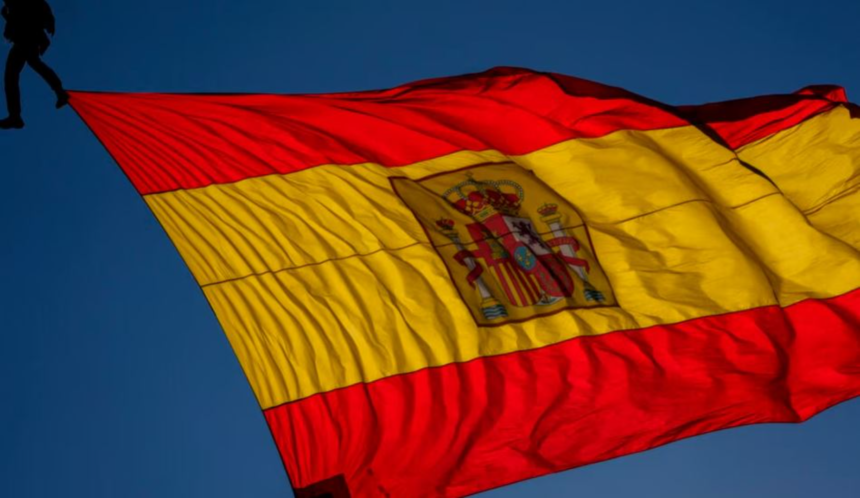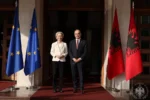During his visit to Spain this week, NATO Secretary General called on member countries to increase military spending in light of the threat from Russia. Spain spends less on defense compared to the size of its economy.
U.S. President Donald Trump singled out Madrid for failing to meet NATO’s defense spending target.
Spain is the fourth-largest economy in the Eurozone. However, it ranks last in terms of defense spending among the 32 NATO member alliance.
Madrid spent around $21.3 billion on defense last year, or 1.28% of its Gross Domestic Product (GDP), despite NATO’s 2014 pledge to spend at least 2%.
NATO Secretary General Mark Rutte visited Spain and Portugal this week, issuing a warning.
“The goal of spending 2% of GDP on defense, set a decade ago, will not be sufficient to face the challenges of tomorrow. The threat from Russia may seem distant, but I assure you, it is not,” Rutte said.
Spanish Prime Minister Pedro Sanchez stated that Spain is committed to reaching the 2% target by 2029. He added that defense spending had increased by 70% over the last decade. Sanchez further mentioned that, overall, Madrid is the 10th-largest contributor to NATO.
Spanish troops also assist in training Ukrainian forces as Kyiv fights against Russian aggression.
However, this is unlikely to be seen as enough by NATO’s largest contributor, the United States, which in 2024 spent 3.38% of its GDP on defense.
President Trump called Spain’s contribution to NATO “very low.” He also called for an increase in the defense spending target.
“I will ask all NATO countries to increase their defense spending to 5% of GDP, a goal that should have been achieved years ago,” Trump said.
He has long complained that European allies are benefiting from the United States and that they should bear more of the defense spending burden.
However, analyst Pere Ortega says the 5% target is unrealistic for Spain.
“That would mean Spain spending nearly €65 billion. We don’t have that economic capacity. To achieve this defense spending, in some way, it would have to come at the cost of social security spending. Spaniards would punish that with their vote during elections,” Ortega, from the ‘Delàs’ Center for Peace Studies in Madrid, told VOA.
President Trump has, however, found support from Lithuania, which announced this month that it will increase defense spending to 5 or 6% of GDP by 2026.
“We are adapting to NATO’s defense plan, which is of vital importance to our region,” said Lithuanian Defense Minister Dovilė Šakalienė.
At his first NATO meeting as President of the United States in 2017, Donald Trump reprimanded allies for failing to spend enough on defense.
European allies, particularly Spain, are prepared to face further demands at the next leaders’ summit, which will be held in The Hague in June.







